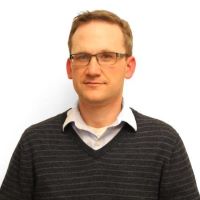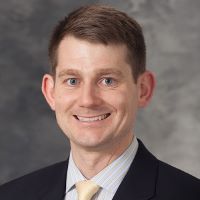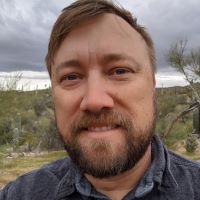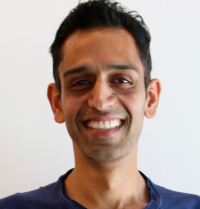NVIDIA PANEL DISCUSSION
Sub brand
Date: Thursday, December 3, 2020
Time: 9:00am – 10:00am PT
Duration: 1 hour
Time: 9:00am – 10:00am PT
Duration: 1 hour
Containers are becoming a critical component of scientific research, letting researchers easily share, scale, and reuse tools to tackle high-performance computing workloads.
Join our panel session to learn how the use of containers benefits researchers and IT administrators at supercomputing sites and labs across the country. Our panel of experts will weigh in on their experience deploying containers to streamline their workflows.
Hear from the panelists about:
- Challenges they face when building apps and managing HPC clusters
- Why they started using containers and what benefits they have experienced
- The advice they can offer for their fellow researchers and system admins
WEBINAR REGISTRATION
THANK YOU FOR REGISTERING FOR THE WEBINAR
You will receive an email with instructions on how to join the webinar shortly.
Main Content
maincontent goes here
Content
Content goes here
Content
content goes here
Content
Content goes here
Content
DGX Station Whitepaper
Dive deeper into the DGX Station and learn more about the architecture, NVLink, frameworks, tools and more.
Dive deeper into the DGX Station and learn more about the architecture, NVLink, frameworks, tools and more.
DGX Station Whitepaper
Dive deeper into the DGX Station and learn more about the architecture, NVLink, frameworks, tools and more.
Dive deeper into the DGX Station and learn more about the architecture, NVLink, frameworks, tools and more.
Content
Content goes here
Panelists

Benjamin Lynch
Associate Director for Scientific Computing, University of MinnesotaBen leads the Scientific Computing Solutions (SCS) team at MSI, which consults for research groups spanning many disciplines and leads new technology deployments. While in graduate school, Ben developed wave-based and density-functional based electronic structure methods. He also used genetic algorithms to optimize basis functions in multi-coefficient electron correlation extrapolation methods. These methods were developed to be used in thermochemistry and thermochemical kinetics simulations.

John Garrett
Assistant Professor and Director of Informatics, Department of Radiology,University of Wisconsin-MadisonDr. John Garrett is an assistant professor with the Department of Radiology in the University of Wisconsin School of Medicine and Public Health. He received his bachelor of arts in physics from Middlebury College in 2011 and his masters of science and doctor of philosophy degrees in Medical Physics under the guidance of Dr. Guang-Hong Chen at the University of Wisconsin-Madison in 2013 and 2017, respectively. His dissertation work focused on reconstruction and image analysis for digital breast tomosynthesis. Following his doctoral studies, Dr. Garrett worked as an Assistant Scientist in the Department of Medical Physics at the University of Wisconsin-Madison in the CT Research group before joining the department of Radiology as a clinical health sciences Assistant Professor and Director of Informatics.

Tyson Swetnam
Research Assistant Professor, University of ArizonaTyson L. Swetnam Ph.D., is Research Assistant Professor of Geoinformatics in the BIO5 Institute at The University of Arizona (UA). Dr. Swetnam's interests include the applied use of cyberinfrastructure for spatial analysis in the earth and life sciences. His broad and collaborative research portfolio spans dendrochronology, dendroecology, disturbance and landscape ecology, ecohydrology, geographic information systems, geoinformatics, geomorphology, natural resource management, and remote sensing. He is currently lead scientist for the development of spatial data infrastructure with CyVerse.org, a National Science Foundation (NSF) supported cyberinfrastructure project. Dr. Swetnam holds a joint faculty appointment in the School of Natural Resources and the Environment in Watershed Management. His current funded projects are with the NSF, The Nature Conservancy, and the USDA Agricultural Research Service. He is an active member of Data7 Data Science Institute at UA; a volunteer instructor and lessons maintainer for The Carpentries, teaching foundational coding and data science skills; and Research Bazaar Arizona, a digital literacy group emerging at the center of modern research.

Akhil Docca
(Host) Senior Product Marketing Manager, NGC, NVIDIAAkhil Docca is a senior product marketing manager for NGC at NVIDIA, focusing in HPC and DL containers. Akhil has a Master’s in Business Administration from UCLA Anderson School of Business and a Bachelor’s degree in Mechanical Engineering from San Jose State University.
Other Speakers
Name1
Job Title.
Job Title.
Name 2
Job Title.
Job Title.
Name 3
Job Title.
Job Title.
Content Title
Content here